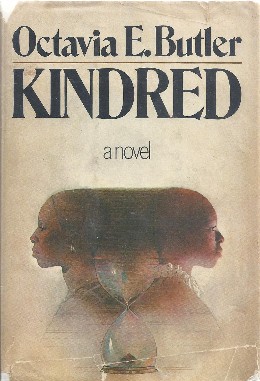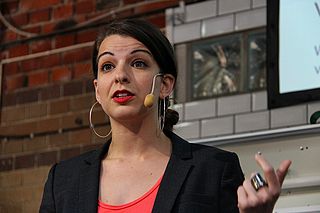Related Research Articles

Discrimination is the act of making distinctions between people based on the groups, classes, or other categories to which they belong or are perceived to belong that are disadvantageous. People may be discriminated on the basis of race, gender identity, sex, age, religion, disability, or sexual orientation, as well as other categories. Discrimination especially occurs when individuals or groups are unfairly treated in a way which is worse than other people are treated, on the basis of their actual or perceived membership in certain groups or social categories. It involves restricting members of one group from opportunities or privileges that are available to members of another group.

Transphobia consists of negative attitudes, feelings, or actions towards transgender people or transness in general. Transphobia can include fear, aversion, hatred, violence or anger towards people who do not conform to social gender expectations. It is often expressed alongside homophobic views and hence is often considered an aspect of homophobia. Transphobia is a type of prejudice and discrimination, similar to racism and sexism, and transgender people of color are often subjected to all three forms of discrimination at once.
Islamophobia is the fear of, hatred of, or prejudice against the religion of Islam or Muslims in general, especially when seen as a geopolitical force or a source of terrorism.
Oppression is malicious or unjust treatment or exercise of power, often under the guise of governmental authority or cultural opprobrium. It is related to regimentation, class society and punishment. Oppression may be overt or covert, depending on how it is practiced. Oppression refers to discrimination when the injustice does not target and may not directly afflict everyone in society but instead targets or disproportionately impacts specific groups of people.
Marxist feminism is a philosophical variant of feminism that incorporates and extends Marxist theory. Marxist feminism analyzes the ways in which women are exploited through capitalism and the individual ownership of private property. According to Marxist feminists, women's liberation can only be achieved by dismantling the capitalist systems in which they contend much of women's labor is uncompensated. Marxist feminists extend traditional Marxist analysis by applying it to unpaid domestic labor and sex relations.

Critical race theory (CRT) is a cross-disciplinary examination – by social and civil-rights scholars and activists – of how laws, social and political movements, and media shape, and are shaped by, social conceptions of race and ethnicity. The word critical in the name is an academic reference to critical thinking, critical theory, and scholarly criticism, rather than criticizing or blaming people.

Kindred (1979) is a novel by American writer Octavia E. Butler that incorporates time travel and is modeled on slave narratives. Widely popular, it has frequently been chosen as a text by community-wide reading programs and book organizations, and for high school and college courses.

The 21st-century hipster is a subculture. Fashion is one of the major markers of hipster identity. Members of the subculture typically do not self-identify as hipsters, and the word hipster is often used as a pejorative for someone who is pretentious or overly concerned with appearing trendy.
Microaggression is a term used for commonplace daily verbal, behavioral or environmental slights, whether intentional or unintentional, that communicate hostile, derogatory, or negative attitudes toward stigmatized or culturally marginalized groups. The term was coined by Harvard University psychiatrist Chester M. Pierce in 1970 to describe insults and dismissals which he regularly witnessed non-black Americans inflicting on African Americans. By the early 21st century, use of the term was applied to the casual degradation of any socially marginalized group, including LGBT people, poor people, and disabled people. Psychologist Derald Wing Sue defines microaggressions as "brief, everyday exchanges that send denigrating messages to certain individuals because of their group membership". The persons making the comments may be otherwise well-intentioned and unaware of the potential impact of their words.
Misogyny in rap music refers to lyrics, videos, or other aspects of rap music that support, glorify, justify, or normalize the objectification, exploitation, or victimization of women. It is an ideology that portrays women as objects for men's ownership, use, or abuse. It diminishes women to expendable beings. It can range from innuendoes to stereotypical characterizations and defamations.
Riot grrrl is an underground feminist punk movement that began during the early 1990s within the United States in Olympia, Washington and the greater Pacific Northwest and has expanded to at least 26 other countries. Riot grrrl is a subcultural movement that combines feminism, punk music, and politics. It is often associated with third-wave feminism, which is sometimes seen as having grown out of the riot grrrl movement and has recently been seen in fourth-wave feminist punk music that rose in the 2010s. The genre has also been described as coming out of indie rock, with the punk scene serving as an inspiration for a movement in which women could express anger, rage, and frustration, emotions considered socially acceptable for male songwriters but less common for women.
Feminist views on sexuality widely vary. Many feminists, particularly radical feminists, are highly critical of what they see as sexual objectification and sexual exploitation in the media and society. Radical feminists are often opposed to the sex industry, including opposition to prostitution and pornography. Other feminists define themselves as sex-positive feminists and believe that a wide variety of expressions of female sexuality can be empowering to women when they are freely chosen. Some feminists support efforts to reform the sex industry to become less sexist, such as the feminist pornography movement.
Hipster racism is engaging in behaviors typically regarded as racist and defending them as being performed ironically or satirically. Rachel Dubrofsky and Megan W. Wood have described it as being supposedly "too hip and self-aware to actually mean the racist stuff one expresses". This might include wearing blackface and other performances of stereotyped African Americans, use of the word nigger, and appropriating cultural dress. Talia Meer argues that hipster racism is rooted in what she calls "hipster exceptionalism", meaning "the idea that something ordinarily offensive or prejudiced is miraculously transformed into something clever, funny and socially relevant, by the assertion that said ordinarily offensive thing is ironic or satirical." As Leslie A. Hahner and Scott J. Varda described it, "those participating in acts of hipster racism understand those acts as racist when practiced by others, but rationalize their own racist performances through a presumed exceptionalism."
Feminist Digital Humanities is a more recent development in the field of Digital Humanities, a project incorporating digital and computational methods as part of its research methodology. Feminist Digital Humanities has risen partly because of recent criticism of the propensity of Digital Humanities to further patriarchal or hegemonic discourses in the Academy. Women are rapidly dominating social media in order to educate people about feminist growth and contributions. Research proves the rapid growth of Feminist Digital Humanities started during the post-feminism era around from the 1980s to 1990s. Such feminists’ works provides examples through the text technology, social conditions of literature and rhetorical analysis. Feminist Digital Humanities is aimed to identify and explore women's sense of writing as well as to prove widespread of women's work in most of the digital archive.

Sexism in video gaming is prejudiced behavior or discrimination based on sex or gender as experienced by people who play and create video games, primarily women. This may manifest as sexual harassment or in the way genders are represented in games, such as when characters are presented according to gender-related tropes and stereotypes.
Bethan Benwell, is a British linguist. She has been a senior lecturer in English Language and Linguistics, for the Division of Literature and Languages, at the University of Stirling since 2008.

Mark Fisher, also known under his blogging alias k-punk, was an English writer, music critic, political and cultural theorist, philosopher, and teacher based in the Department of Visual Cultures at Goldsmiths, University of London. He initially achieved acclaim for his blogging as k-punk in the early 2000s, and was known for his writing on radical politics, music, and popular culture.

Woke is an adjective derived from African-American Vernacular English (AAVE) meaning "alert to racial prejudice and discrimination". Beginning in the 2010s, it came to encompass a broader awareness of social inequalities, such as sexism, and has also been used as shorthand for some ideas of the American Left involving identity politics and social justice, such as white privilege and slavery reparations for African Americans.

Phil Cohen is a British cultural theorist, urban ethnographer, community activist, educationalist and poet. He was involved in the London underground counter-culture scene and gained public notoriety as "Dr John", a leader in the squatter's rights movement but is now better known for his work on youth culture and the impact of urban regeneration on working-class communities, particularly in East London, with a focus on issues of race and popular racism. More recently the scope of his work has widened to includes issues of identity politics, memory and loss, and the future of the Left in Britain.His most recent writing and research focuses on the transformation of object relations within digital capitalism,especially in relation to the Covid-19 pandemic and the environmental crisis. Cohen's academic work is trans-disciplinary and draws on concepts from linguistics and narratology, psycho-analysis and anthropology, cultural history and social phenomenology. He is currently (2022) Emeritus Professor at the Centre for Cultural Studies at the University of East London, a research fellow at the Young Foundation and Research Director of the Livingmaps Network. Cohen is also a member of Compass, a Gramscian think tank within the Labour Party and is on the editorial board of New Formations. His work has been translated into French, German, Swedish, Italian, French and Japanese.

Yoga in advertising is the use of images of modern yoga as exercise to market products of any kind, whether related to yoga or not. Goods sold in this way have included canned beer, fast food and computers.
References
Citations
- 1 2 Wallace, Kelsey (1 November 2012). "'Hipster Sexism': Just as Bad as Regular Old Sexism, or Worse?". Portland, Oregon: Bitch Media. Archived from the original on 3 November 2012. Retrieved 25 October 2017.
- 1 2 3 4 5 Quart, Alissa (30 October 2012). "The Age of Hipster Sexism". The Cut. New York: New York Media. Archived from the original on 2 November 2012. Retrieved 25 October 2017.
- ↑ Murphy, Meghan (Summer 2013) "The Rise of Hipster Sexism". Herizons. 27 (1): 17.
- ↑ Calder-Dawe, Octavia (15 December 2015). "The Choreography of Everyday Sexism: Reworking Sexism in Interaction". New Formations. 86 (86): 90, 95. doi:10.3898/newf.86.05.2015. S2CID 146620451.
- ↑ Murphy, Meghan (Summer 2013). "The Rise of Hipster Sexism". Herizons. 27 (1): 19.
- 1 2 Calder-Dawe, Octavia (15 December 2015). "The Choreography of Everyday Sexism: Reworking Sexism in Interaction". New Formations. 86 (86): 90. doi:10.3898/newf.86.05.2015. S2CID 146620451.
- ↑ Wakeman, Jessica (31 October 2012). "Please, Can 'Hipster Sexism' Not Be A Thing?". The Frisky. New York: BuzzMedia. Archived from the original on 2 November 2012. Retrieved 25 October 2017.
- ↑ Current & Tillotson 2015, p. 4; Threadgold 2018.
Bibliography
- Calder-Dawe, Octavia (2015). "The Choreography of Everyday Sexism: Reworking Sexism in Interaction". New Formations. 86 (86): 89–105. doi:10.3898/NEWF.86.05.2015. ISSN 1741-0789. S2CID 146620451.
- Current, Cheris Brewer; Tillotson, Emily (2015). "Hipster Racism and Sexism in Charity Date Auctions: Individualism, Privilege Blindness and Irony in the Academy". Gender and Education. 30 (4): 467–476. doi:10.1080/09540253.2016.1216952. ISSN 1360-0516. S2CID 151341931.
- Threadgold, Steven (2018). Youth, Class and Everyday Struggles. Abingdon, England: Routledge. ISBN 978-1-317-53285-9.